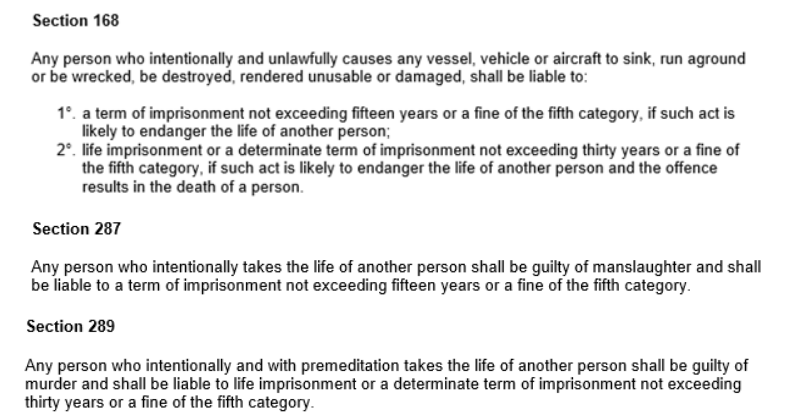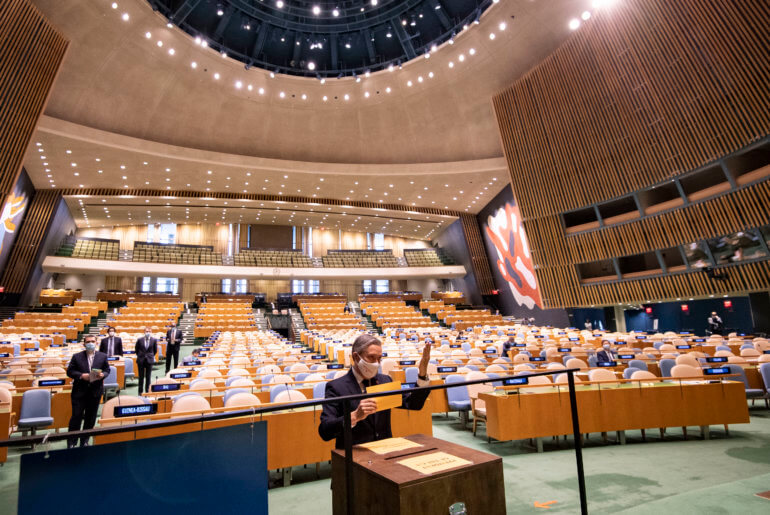
Tony Cartalucci
21st Century Wire
Despite what appears to be a terminal decline of US influence over the Middle East, Washington has no intentions of gracefully abandoning its aspirations of regional hegemony.
Air strikes carried out against Syria by Washington’s Israeli proxies, a mysterious explosion near Tehran, and the current Iraqi Prime Minister’s decision to round up leaders of Iranian-backed militias who helped defeat the self-proclaimed “Islamic State” (ISIS) unfolded in quick succession in an apparent coordinated campaign aimed at Iran and its allies.
The Washington DC-based Al Monitor in an article titled, “Suspected Israeli airstrikes hit various locations in Syria,” would claim:
Suspected Israeli airstrikes hit Syrian military and Iran-backed militia sites Tuesday night and early Wednesday morning. There are differing reports on the casualties.
This morning’s aerial assault targeted Syrian military sites outside the central city of Hama.
Days later, under orders by Iraq’s new prime minister – Mustafa Al-Kadhimi – Iraqi security forces raided the headquarters of an Iranian-backed militia detaining several leaders.
Reuters in its article, “Iraqi forces raid Iran-backed militia base, detain commanders: government sources,” would claim:
Iraqi security forces raided a headquarters belonging to a powerful Iran-backed militia in southern Baghdad late on Thursday, seized rockets and detained three commanders of the group, two Iraqi government officials said.
The officials said the militia group targeted was the Iran-backed Kataib Hezbollah, which U.S. officials have accused of firing rockets at bases hosting U.S. troops and other facilities in Iraq.
Iraq has been under significant pressure from the US to roll back growing ties with Iran and still hosts thousands of US troops illegally occupying its territory as well as a myriad of militant groups the US and its regional allies back either openly or covertly including Al Qaeda and ISIS itself.
More recently, a massive explosion took place just southeast of Iran’s capital, Tehran. While Iranian officials claim it was an accident at a civilian gas storage facility, pro-war elements across the West have insisted it was the result of an attack on a military complex located in the region.
Should it turn out to be an attack – US proxies – either Israel or US-backed terrorists operating inside Iran are most likely responsible representing a strategy laid out by US policymakers as early as 2009 in their own papers – particularly and explicitly in the Brookings Institution’s 2009 paper, “Which Path to Persia? Options for a New American Strategy Toward Iran” (PDF) under chapters including, “Allowing or Encouraging an Israeli Military Strike,” and “Inspiring an Insurgency: Supporting Iranian Minority And Opposition Groups.”
The timing of the explosion, following two highly provocative moves made against Iran and its allies in the region suggest the US is attempting to escalate tensions with Iran to save its fading influence in the Middle East.
New Iraqi Prime Minister’s Checkered Past
Prime Minister Mustafa Al-Kadhimi took office in May 2020.
While he has warned about deepening relations with Iran he has concurrently stated the importance of US backing – despite the US having illegally invaded, destroyed, and since occupied Iraq starting in 2003.
His past – including his exile in London and his US National Endowment for Democracy (NED) linked Iraq Memory Foundation as well as his regular contributions to the above mentioned Washington DC-based Al Monitor call into serious question his ability to protect Iraq’s sovereignty as well as Iraq’s best interests.
On the Iraq Memory Foundation’s own website under “About,” it admits its genesis as a spin-off of a US NED funded Harvard-based front called the Iraq Research and Documentation Project (IRDP). The website claims (emphasis added):
The Memory Foundation is an outgrowth of the Iraq Research and Documentation Project (IRDP), founded by Kanan Makiya at the Center of Middle East Studies at Harvard University in 1992. In 1993, the IRDP developed a plan to create an archive that would organize and preserve the documents already in its possession for more long-term scholarly purposes. Utilizing a 1993 grant from the Bradley Foundation, followed by a 1994 bridging grant from the National Endowment for Democracy, the IRDP began its work processing the small collection of documents in Makiya’s personal possession and transcribing interviews conducted with Iraqi refugees. The IRDP continued to receive and process small datasets over the next ten years.
Regarding Al-Kadhimi himself, the website notes that he previously worked as:
the director of programming for Radio Free Europe’s Iraq service from 1999 to 2003. He also participated in launching the Iraqi Media Network as the Director of Planning and Programming immediately after the fall of Saddam Hussein regime in 2003. Since leaving Al-Iraqiya he has worked with the Iraq Memory Foundation, researching, directing and producing numerous filmed oral history testimonies with survivors of the Saddam Hussein regime.
Radio Free Europe – according to its own website – “is funded by a grant from the U.S. Congress through the United States Agency for Global Media (USAGM).”
In an age where simply holding views similar to that of nations like Russia earn among the Western media labels like “Russian agent,” Iraq’s current prime minister was literally on the payroll of the US government. The website also notes that he produced documentaries for British state programming including the BBC.
All of Al-Kadhimi’s efforts fed directly into US war propaganda used to justify Washington’s military aggression against Iraq for decades.
Al-Kadhimi also was a regular contributor to Al Monitor – which despite attempting to appear as a Middle Eastern news source – is actually based in Washington DC and headed by American corporate-funded think tank staff and lobbyists.
Al Monitor’s president and chief content officer – Andrew Parasiliti – for example has an extensive background in US corporate-funded foundations and lobbying groups which regular receive money from big-oil, defense contractors, and other multi-billion dollar multinational interests to engineer and promote wars and interventions abroad.
The Al Monitor’s biography for Parasiliti states:
He previously served as director of RAND’s Center for Global Risk and Security and international marketing manager of RAND’s National Security Research Division; editor of Al-Monitor; executive director of the International Institute for Strategic Studies-US and corresponding director, IISS-Middle East; a principal at the BGR Group; foreign policy advisor to US Senator Chuck Hagel; director of the Middle East Initiative at Harvard University’s John F. Kennedy School of Government; and director of programs at the Middle East Institute.
Al Monitor clearly serves as yet another vehicle for promoting US intervention and influence abroad.
And it was in Al Monitor that now Iraqi PM Al-Kadhimi wrote articles like his 2015 piece, “US-Iraqi relations need a reset,” in which he presented a skewed version of history from 2003 onward – ignoring the false pretense used by the US to invade Iraq in the first place and the utter destruction and division sown throughout the country ever since.
He also mischaracterizes the appearance of ISIS in 2014 – failing to link America’s supposed withdrawal from Iraq and the serendipitous appearance of the terrorist organization and the opportunity it provided the US to reoccupy Iraq on terms more favorable to Washington. Nothing about ISIS’ US and Saudi funding and arming was mentioned.
He concluded the piece claiming:
US-Iraqi relations since 2003 demonstrate that when ties between the two countries become weak or marginal, it paves the way for external actors to enter and jeopardize common US-Iraqi regional interests. Thus, Washington and Baghdad need to reassess their relationship to develop an effective strategy to help restore the balance of power in the region and ensure their mutual interests.
When Iraq’s current PM Al-Kadhimi talks about “restoring the balance of power in the region” he is referring to the balance of power the US created and whose benefits only the US and its closest proxies enjoy, all at the cost of everyone else. Al-Kadhimi also made reference in his Al Monitor op-ed to the US propaganda vehicle “the axis of evil” – years after even the US abandoned it as a viable excuse to remain militarily engaged in the region.
While it is difficult to say what sort of leader Al-Kadhimi will ultimately be, his checkered past and his unpromising start signal a period of heightened conflict and instability within Iraq as this previously eager US proxy attempts to steer Iraq in a direction its people and its national economic and political ties do not and cannot go.
US Middle East War is Unwinnable, but Far from Over
The US and its allies provide Iraq with no genuine political or economic ties or development – and are using the nation as a base for sowing conflict throughout the region – conflict that will ultimately negatively impact Iraq’s own political and economic stability.
It is an unsustainable strategy since the vast majority of Iraqis – whether they are pro-Iranian or not – would chose political and economic stability over being an expendable pawn in Washington’s overseas aggression.
The entire region is attempting – somewhat successfully – to move out from under the shadow of US hegemony and its corrosive effects. While in recent years the US has suffered multiple failures and is incrementally being uprooted from the region – it remains a dangerous hegemon with formidable military, political, and economic weapons arrayed against the Middle East.
Washington’s desperation is highlighted by its increasing need to resort to increasingly less effective violence as the deterrence of its once global might fades and nations begin testing and rolling back the edges of its crumbling hegemony.
It will take time and patience to weather the parting blows of the “American Empire” and its presence in the Middle East – a parting that will take many more years to come and one in which acts of desperation could still lead to catastrophic, open regional war.
Despite the past of characters like Iraqi PM Al-Kadhimi – there is always the possibility that events on the ground will sway policies to continue away from American meddling and aggression and toward peace and stability – something Al-Kadhimi and everyone else in Iraq will benefit from far more than maintaining unawarded loyalty to Washington.
It will be a matter of nations like Iran and its allies keeping doors and avenues open for characters like Al-Kadhimi to escape through – tempting them in the right direction and away from the fate of other “successful” US regime change projects in places like Libya and Ukraine.
***
Author Tony Cartalucci, Bangkok-based geopolitical researcher, writer and special contributor to 21st Century Wire. See more of his work at Tony’s archive. Over the last decade, his work has been published on a number of popular news and analysis websites, and also on the online magazine “New Eastern Outlook”. Also, you can follow him on VK here.
https://21stcenturywire.com/2020/06/27/why-u-s-wars-in-the-middle-east-are-far-from-over/









